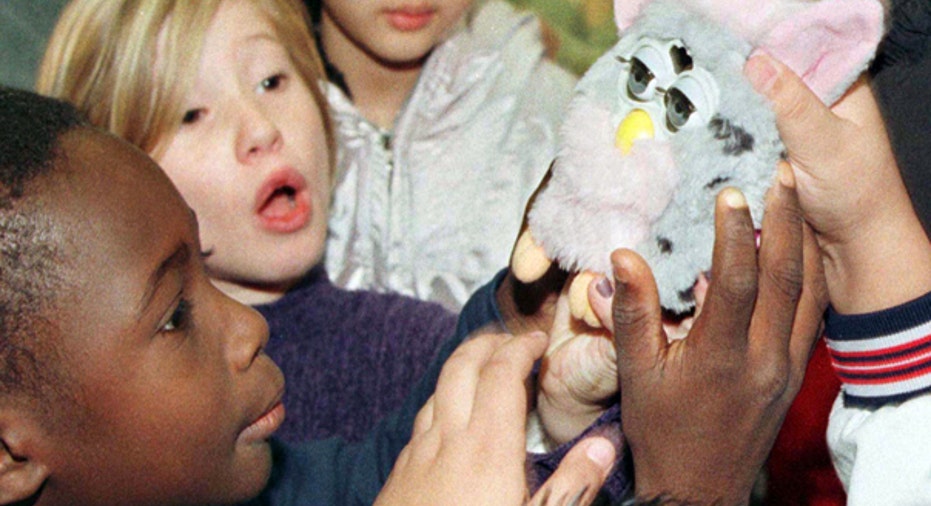Want Compassionate Kids? Be a Role Model

Heres the picture: I am sitting at Gate 91 in Orlando International Airport, headed home after a two-day business meeting. At least half of the terminal population is children, many wearing T-shirts, mouse ears and the other souvenirs one inevitably cannot leave this town without. Add to this the fact that its already been an unusually kid-filled summer for me consisting of a 16th birthday party, high school graduations, celebrating Fourth of July weekend spent with another family, a day visiting dear friends who are essentially raising their grandkids (ages 7 and 5)& you get my drift. In the past four weeks, Ive had more face time with the under-18 crowd than in the prior six months.
On top of these interactions, I serve on the board of a local non-profit and were struggling to make ends meet because the economy remains on life support. When unemployment exceeds 9%, folks just dont have a lot of cash to spare; donations to our organization, as well as other charities, are down. At the same time, the tough economic climate means that the demand for the services we provide has increased.
During the two-hour wait before take-off, I started thinking about what makes some kids think the world revolves around them (I want/need/gotta have/deserve, etc...) and others much more sensitive to the needs of others- humans and non-humans alike. What motivates one child to organize a school car wash to raise money to rescue birds impacted by the devastating oil spill in the Gulf of Mexico or help victims of recent tornadoes, while others can only complain about not having have their own car? How is it that one 12-year old volunteers at the local animal shelter on Saturday while another heads to the mall?
These same questions apply to all of us. What makes some of us--regardless of age--so sensitive to the plight of others that we freely give away or give up things that we value- time, money, material possessions, toys, etc.? And, assuming you think this is a positive attribute, how do you encourage this behavior?
First, let me say that Americans are the most generous society in the world. No other country comes close to being as charitable as we are. Its rooted in our national DNA, thanks, in large part, to our Judeo-Christian religious heritage; woven throughout the literary tapestry of The Bible are stories and lessons that repeatedly stress the responsibility to take care of those less fortunate. Unlike other cultures, this is not a function of government, but of individuals and communities.
In other countries taxes are much higher, says Eileen Heisman, president and CEO of National Philanthropic Trust, a public charity that works to encourage philanthropy and manages more than $1 billion in charitable assets. As a result, people figure the government takes care of those in need. When Heisman tried to explain the motivations behind philanthropy during a trip to Europe she says, in Germany they were clueless. They didnt understand why someone would give private dollars, part with their income.
Heisman, who is also a philanthropy professor at the University of Pennsylvania, says people are either charitable or theyre not. However, the good news is that this is an attribute that is teachable. Studies show that compassion, caring and generosity are traits that you learn from those around you, with parents having the greatest influence.
If parents want their kids to grow up to be charitably-inclined adults, You have to model it yourself and also get the child involved, says Heisman. Start early and do it often.
Writing a check and sending it off to the charity of your choice isnt the answer. According to Heisman, to the extent possible, parents need to physically demonstrate what it means to be charitable. She suggested volunteering at an organization with your child. Instead of having used clothing and household items picked up, take them to the thrift shop so your child can see how the process works. Volunteer- along with your kids- at a soup kitchen or animal shelter, this not only allows them to feel needed and important, seeing the plight of those less fortunate helps them appreciate what they have.
Heisman says a tradition in her family is that on each birthday, the child who is celebrating gets to give away an amount of money equal to their age. A family member acts as a mentor, helping the child decide where their donation should go. She also suggests asking a child who receives a new toy, to give away an older one by donating it to a charity.
In short, when it comes to raising caring kids, actions speak louder than words. Both charity- and instilling a charitable mindset in your children- begin at home.
Ms. Buckner is a Retirement and Financial Planning Specialist at Franklin Templeton Investments. The views expressed in this article are only those of Ms. Buckner or the individual commentator identified therein, and are not necessarily the views of Franklin Templeton Investments, which has not reviewed, and is not responsible for, the content.
If you have a question for Gail Buckner and the Your $ Matters column, send them to: yourmoneymatters@gmail.com, along with your name and phone number.



















